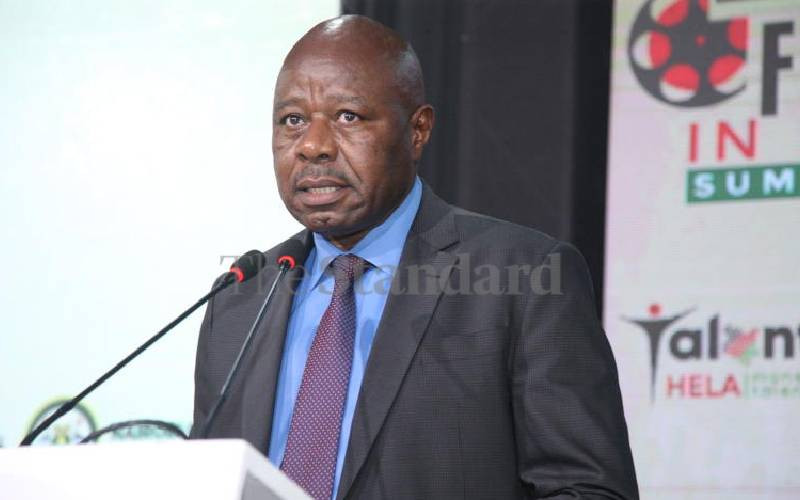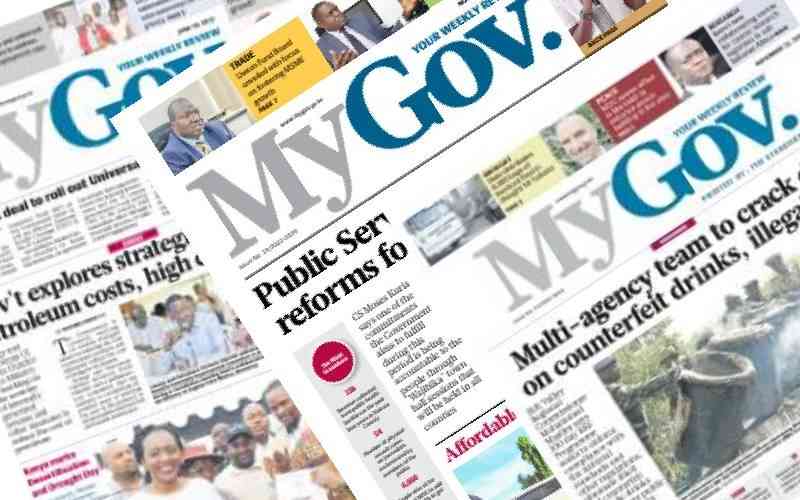In September 2012, a few months before the official campaign period commenced in the run up to the March 2013 elections, political parties had reportedly booked most of the prime outdoor advertising slots particularly, billboards.
When the official campaign period started, parties were outdoing each with billboards.
This year, however, while there are billboards of candidates and their parties, they are few and far between.
Audience segments
Experts say a number of factors have contributed to the lackluster use of traditional media by politicians to get their messages across to the public.
These include the growth of social media platforms, which are no longer a preserve of a few but are now common place and cutting across different audience segments.
Another factor has been the growth in the sway that political parties have in propelling candidates to victory, which resulted in aspirants spending much resources as they sought to clinch their party tickets during primaries. This has left many drained and with little resources to spend during the campaign period but also seen others relax in selling their agenda as they are assured of victory during the elections owing to their party affiliations.
Transcend Media Group Chief Anthony Gathecha observed that a combination of these factors have now seen politicians adopt largely below the line modalities of getting across to their audiences in their bid to win votes.
He said politicians are branding merchandise such as T-shirts, caps and even placards as well as going door-to-door to talk to the voters. “Politicians are increasingly catching up with the people on the ground talking to them and giving them tokens such as the branded merchandise,” he explained.
“For many people, these are items they can wear even after elections and they tend to appreciate them as gifts. There are also billboards but these are few. What we have seen so far, however, is that few want to pay for commercials and instead prefer to be panellists on radio and TV shows. During such shows, they air their party views and then repackage the content and circulate it to social media groups on platforms such as WhatsApp and Facebook.”
Most politicians have not embraced online advertising, considering they are pushing content on platforms such as WhatsApp and Facebook as opposed to actually buying space online.
Their adoption of technology is a pointer that things may not be the same again for the media such as billboards, newspapers, radio and TV that have largely been used in campaigns in the past.
“Digital platforms, especially WhatsApp are particularly big when it comes to getting messages across for the politicians. They are repurposing content run on main stream media such as TV and getting these sent to their groups,” said Gathecha.
Political parties
He observed that many politicians were financially hit hard by the primaries. They were left with little resources to spend. While the political noise might be at its peak now, the politicians and political parties have not locked out corporates from the different media platforms through their spending and hoarding on to media platforms.
Stay informed. Subscribe to our newsletter
Instead, it is the noise that has locked the companies out, as they feel that their messages will be drowned in the politicking. According to Gathecha, many firms have opted to hold communication, both advertising and public relations, and are only communicating essential messages.
“Corporates have adopted a wait and see attitude. Many feel that all media are heavy on politics and some do not want their brands to be associated with political messages while others feel they will not get their messages to their audiences. Buyers are also slowing down on big purchases,” he said.
“Communications agencies have been affected because much of the activities are being pushed until after elections.”
Thus, unlike in 2007 and 2013 when media was awash with communication messages by politicians, this year communication firms might not see such of the big spend. It has also seen a shift with many candidates embracing technology, which according to reports offers cost effective means to communicate to audiences not just for politicians but also businesses.
According a PricewaterhouseCoopers (PwC) report, Internet advertising in Kenya will surpass out-of-home advertising in 2019, followed by newspapers in 2020, to become the third-largest platform in Kenya.
“More than half of total Internet advertising revenue comes from mobile devices as smartphone-owning Kenyans continue to grow in number, helped by lower data costs coupled with growing 3G and 4G access.
Advertisers are embracing this easily accessible audience, raising Internet advertising revenue from Sh7.2 billion in 2015 to Sh15.1 billion in 2020,” said the recent PwC report on entertainment and media.
 The Standard Group Plc is a
multi-media organization with investments in media platforms spanning newspaper
print operations, television, radio broadcasting, digital and online services. The
Standard Group is recognized as a leading multi-media house in Kenya with a key
influence in matters of national and international interest.
The Standard Group Plc is a
multi-media organization with investments in media platforms spanning newspaper
print operations, television, radio broadcasting, digital and online services. The
Standard Group is recognized as a leading multi-media house in Kenya with a key
influence in matters of national and international interest.
 The Standard Group Plc is a
multi-media organization with investments in media platforms spanning newspaper
print operations, television, radio broadcasting, digital and online services. The
Standard Group is recognized as a leading multi-media house in Kenya with a key
influence in matters of national and international interest.
The Standard Group Plc is a
multi-media organization with investments in media platforms spanning newspaper
print operations, television, radio broadcasting, digital and online services. The
Standard Group is recognized as a leading multi-media house in Kenya with a key
influence in matters of national and international interest.








